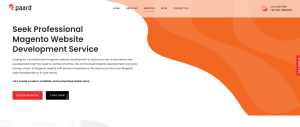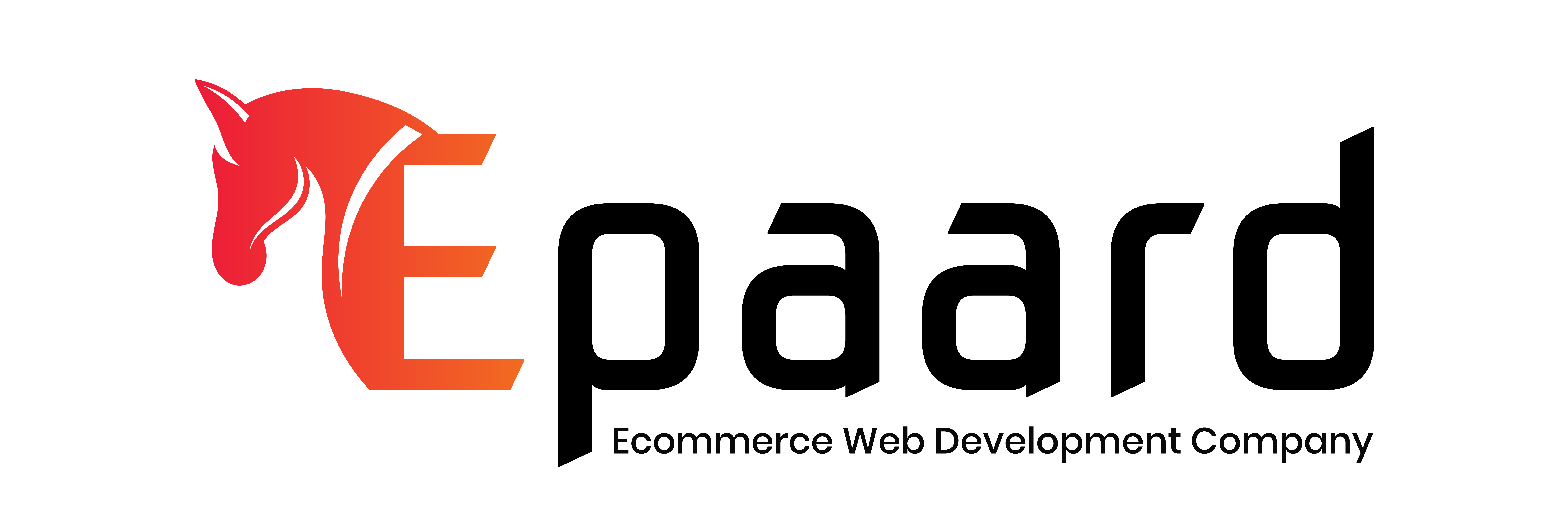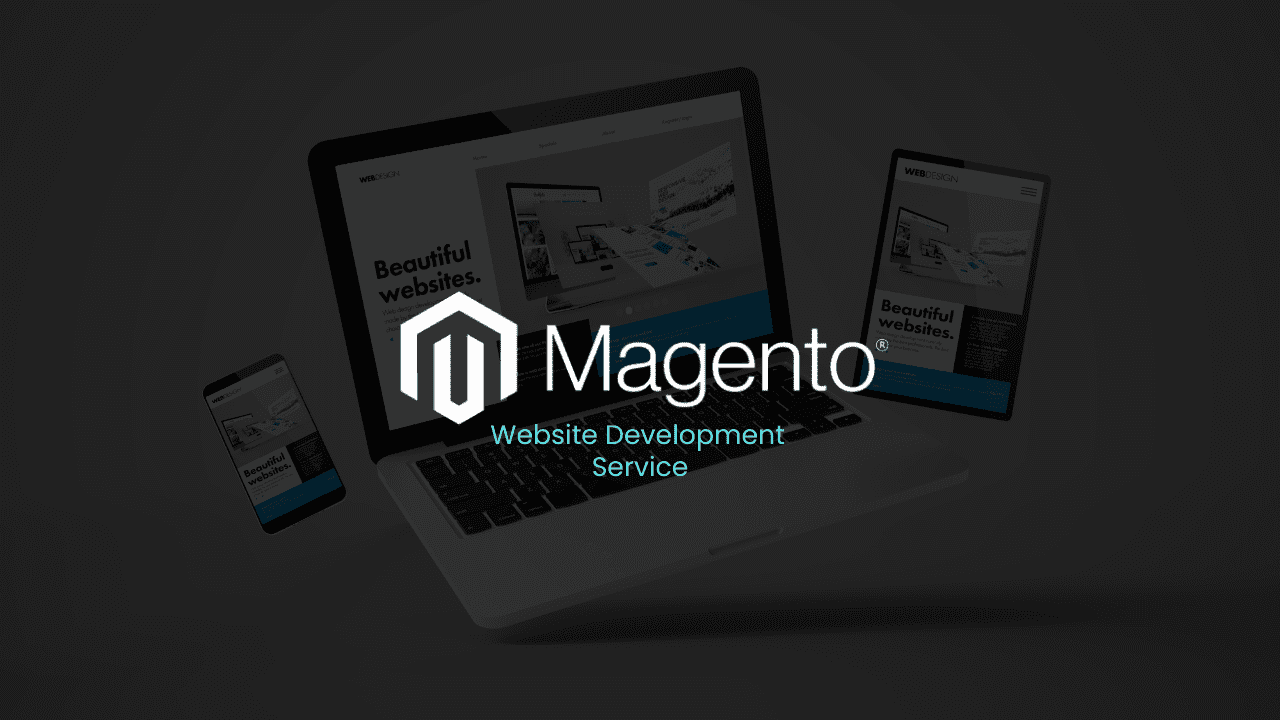In today’s digital age, having a robust online presence is essential for any business to thrive. When it comes to eCommerce, Magento has established itself as a leading platform for building feature-rich and high-performing online stores. In this comprehensive guide to Magento Website Development, we will explore the world of Magento and how it can help you create a powerful online store to drive your business forward. Press Tab to write more…
Understanding Magento
What is Magento?

Magento is an open-source eCommerce platform that provides businesses with a flexible and customizable solution for building and managing online stores. It was first released in 2008 and has since evolved into one of the most popular eCommerce platforms worldwide. Magento is known for its scalability, robust features, and a vast community of developers and users.
Magento Editions
Magento offers several editions, including:
- Magento Open Source: A free version that provides a solid foundation for small and medium-sized businesses.
- Magento Commerce: A paid version with advanced features, ideal for larger enterprises.
- Magento Cloud: A cloud-hosted solution offering scalability and performance.
Why Choose Magento for Your Website Development?
- Flexibility: Magento offers a high degree of customization, allowing you to tailor your online store to meet your specific business needs. You can create unique shopping experiences, custom catalogs, and pricing structures.
- Scalability: Whether you’re a small startup or a large enterprise, Magento can scale with your business growth. It handles thousands of products and high traffic loads without compromising performance.
- Feature-Rich: Magento comes with a plethora of built-in features for catalog management, SEO, marketing, and more. You can add extensions and modules to expand functionality further.
- SEO-Friendly: Magento is designed with SEO best practices in mind, making it easier for your website to rank higher in search engine results. Features like URL rewrites, sitemaps, and metadata control are readily available.
- Security: Magento takes security seriously, providing regular updates and security patches to protect your website from threats. With robust access controls and data encryption, you can trust your customers’ data is safe.
- Multi-Store Capabilities: Magento supports multiple stores from a single admin panel, making it an excellent choice for businesses with diverse product lines or global reach. You can manage different stores with unique product catalogs and designs efficiently.
- Robust Reporting and Analytics: Gain valuable insights into your online store’s performance with Magento’s reporting and analytics tools. Track sales, customer behavior, and conversion rates to make data-driven decisions.
- Internationalization: Magento supports multiple languages, currencies, and tax rates, making it suitable for global eCommerce operations.
Magento Website Development Services
Our Magento Website Development Services

At Epaard, we specialize in Magento Website Development, offering a comprehensive range of services tailored to your business needs:
- Custom Magento Development: We create unique, custom-tailored eCommerce solutions that align with your brand and goals. Our team of experienced developers can build custom features, integrations, and themes to make your online store stand out.
- Theme Development: Design is a critical aspect of eCommerce success. Our team can design and develop custom Magento themes to enhance your store’s visual appeal and user experience. We focus on responsive design to ensure your website looks great on all devices.
- Extension Integration: To extend your website’s functionality, we integrate third-party extensions and modules. Whether you need payment gateways, shipping solutions, or marketing tools, we can seamlessly integrate them into your Magento store.
- Migration to Magento: If you’re currently using another eCommerce platform and wish to migrate to Magento, we have the expertise to make the process seamless. We ensure that your data, product catalog, and customer information are securely transferred.
- Performance Optimization: Website speed is crucial for eCommerce success. Our team optimizes your Magento website for speed and performance, ensuring a smooth shopping experience for your customers. This includes minimizing page load times, implementing caching mechanisms, and optimizing images.
Benefits of Choosing Epaard for Magento Website Development
- Expertise: Our team of experienced developers has a deep understanding of Magento, ensuring top-notch results. We stay updated with the latest Magento developments and best practices.
- Customization: We understand that each business is unique. Our services are tailored to meet your specific business requirements, creating a one-of-a-kind online store that represents your brand identity.
- Timely Delivery: We value your time and strive to deliver projects on schedule without compromising quality. Our efficient project management ensures that your website development stays on track.
- Support and Maintenance: Our commitment to your success extends beyond development. We provide ongoing support and maintenance to keep your website running smoothly. This includes applying security updates, managing content updates, and addressing any technical issues promptly.
The Magento Development Process
Planning and Strategy
Before diving into Magento Website Development, it’s crucial to establish a clear plan and strategy:
- Define Your Goals: Determine your business objectives and what you want to achieve with your online store. Are you aiming for increased sales, improved brand awareness, or expanding into new markets?
- Audience Research: Understand your target audience to tailor your website’s design and functionality to their needs. What are their preferences, pain points, and expectations when shopping online?
- Competitor Analysis: Analyze your competitors’ websites to identify strengths and weaknesses. This can help you differentiate your online store and offer unique value propositions.
- Budgeting: Establish a realistic budget that considers development costs, marketing, and ongoing maintenance. Knowing your budget constraints helps in making informed decisions throughout the development process.
Design and Development
Once you have a solid plan in place, it’s time to start building your Magento website:
- Custom Design: Create a visually appealing and user-friendly design that reflects your brand identity. A well-designed website not only attracts customers but also enhances trust and credibility.
- Development: Build the website using Magento’s robust features, ensuring a seamless user experience. This includes setting up product catalogs, creating user-friendly navigation, and integrating essential features like search, cart, and checkout.
- Testing: Thoroughly test the website to identify and fix any bugs or issues. Testing includes functional testing, usability testing, security testing, and performance testing.
- User Experience Optimization: Focus on creating an intuitive and enjoyable shopping experience for your customers, including responsive design for mobile users. A smooth user experience can lead to higher conversion rates.
- Accessibility: Ensure that your website is accessible to all users, including those with disabilities. Compliance with accessibility standards not only widens your audience but also demonstrates inclusivity.
Launch and Marketing
After development, it’s time to launch your Magento website:
- Deployment: Deploy the website on a reliable hosting server to ensure optimal performance. Consider using a dedicated server or cloud hosting for scalability.
- Marketing Strategies: Implement marketing strategies to drive traffic and increase conversions. These strategies may include:
- SEO (Search Engine Optimization): Optimize your website for search engines to improve organic visibility. Use relevant keywords, optimize meta tags, and create quality content.
- Content Marketing: Develop a content strategy that includes blog posts, product descriptions, and educational content to engage and inform your audience.
- Email Marketing: Set up email campaigns to nurture leads, recover abandoned carts, and announce promotions or new products.
- Social Media Marketing: Leverage social media platforms to promote your products and engage with your audience. Consider using paid advertising to reach a broader audience.
- Pay-Per-Click (PPC) Advertising: Run targeted PPC campaigns on platforms like Google Ads to drive traffic and conversions.
- Conversion Rate Optimization (CRO): Continuously analyze user behavior using tools like Google Analytics and A/B testing. Make improvements to increase conversion rates, such as optimizing the checkout process, improving product recommendations, and enhancing trust signals.
- Customer Retention: Implement strategies for customer retention, such as loyalty programs, personalized recommendations, and excellent customer service. Retaining existing customers can be more cost-effective than acquiring new ones.
Magento SEO and Optimization
Magento SEO Best Practices
- Keyword Optimization: Use relevant keywords, including “Magento Website Development,” to improve your website’s visibility in search engine results. Conduct keyword research to identify the most valuable and relevant keywords for your products and industry.
- Mobile Optimization: Ensure your website is mobile-responsive to cater to the growing number of mobile users. Optimize mobile layouts, images, and navigation for a seamless mobile shopping experience.
- Page Speed: Optimize page loading times to reduce bounce rates and improve user experience. Minimize HTTP requests, leverage browser caching, and compress images to speed up your website.
- Quality Content: Create high-quality, engaging content to attract and retain visitors. This includes blog posts, product descriptions, and informative guides. High-quality content not only helps with SEO but also positions your brand as an authority in your industry.
- Link Building: Develop a strategy for acquiring high-quality backlinks to improve your website’s authority and search engine rankings. Seek opportunities for guest posting, influencer collaborations, and partnerships within your industry.
Performance Optimization
- Caching: Implement caching mechanisms to reduce server load and improve website speed. Magento offers full-page caching, object caching, and browser caching options to enhance performance.
- Image Optimization: Compress images to minimize page load times. Use image compression tools and formats like WebP to maintain image quality while reducing file sizes.
- Regular Updates: Keep your Magento installation and extensions up to date to benefit from the latest performance improvements and security patches. Regularly review and clean up your database to maintain optimal performance.
- Content Delivery Network (CDN): Use a CDN to distribute content geographically and further enhance website speed. A CDN caches your website’s static assets on servers around the world, reducing latency for users in different regions.
- Database Optimization: Optimize your Magento database by removing unnecessary data, optimizing database queries, and implementing indexing. A well-optimized database can significantly improve website performance.
Magento Website Maintenance
Maintaining your Magento website is crucial for its long-term success:
- Security Updates: Regularly apply security patches to protect your website from potential threats. Magento releases security updates to address vulnerabilities, and timely application is essential to maintain a secure environment.
- Content Updates: Keep your website’s content fresh and up to date to engage your audience. Regularly update product listings, blog posts, and other content areas. Highlight new arrivals, promotions, and seasonal offerings to keep customers engaged.
- Performance Monitoring: Continuously monitor your website’s performance using tools like Google Analytics and Magento’s built-in reporting features. Keep an eye on page load times, bounce rates, conversion rates, and other key metrics. Identify areas where improvements are needed and take action promptly.
- Backup and Recovery: Implement a robust backup and recovery strategy to safeguard your data. Regularly back up your website, including databases and files, to secure locations or cloud storage. Test your backup restoration process to ensure you can quickly recover from unforeseen issues.
- User Support: Provide excellent customer support to address any issues or inquiries from your customers promptly. Offer multiple contact channels, such as live chat, email, and phone support, to cater to different customer preferences. A responsive support team enhances customer satisfaction and trust.
- Platform and Extension Updates: Stay up to date with Magento platform updates and extension updates. Regularly check for new versions, bug fixes, and security patches. Test updates in a staging environment before applying them to the live website to prevent disruptions.
- User Experience Optimization: Continuously improve the user experience by gathering feedback from customers and conducting usability testing. Make adjustments based on user input to enhance navigation, product search, and overall website usability.
- Magento and E-Commerce Trends
Staying Ahead of the Curve
Magento’s ecosystem is constantly evolving, and it’s essential to stay updated with the latest eCommerce trends:- Headless Commerce: Explore the benefits of decoupling your frontend and backend to offer more flexibility and faster development. Headless commerce allows you to deliver content and shopping experiences across multiple channels, including web, mobile, voice, and IoT devices.
- Artificial Intelligence (AI): Leverage AI for personalized product recommendations, chatbots, and data analysis. AI-driven insights can help you understand customer behavior, optimize marketing strategies, and improve customer service.
- Omnichannel Commerce: Optimize your online and offline channels to provide a seamless shopping experience for customers. Implement technologies like Buy Online, Pick Up In-Store (BOPIS), and offer consistent pricing and promotions across channels.
- Sustainability: Consider eco-friendly practices in your eCommerce operations, such as sustainable packaging, reducing carbon footprint, and offering eco-friendly product options. Many consumers prioritize sustainability, and addressing these concerns can boost your brand’s appeal.
- Voice Commerce: As voice assistants like Alexa and Google Assistant become more prevalent, explore voice commerce opportunities. Optimize your product listings for voice search and consider voice-enabled shopping experiences.
- Augmented Reality (AR) and Virtual Reality (VR): Implement AR and VR technologies to enhance the online shopping experience. Allow customers to virtually try on products, visualize furniture in their homes, or experience products in 3D.
- Subscription Services: Consider offering subscription-based services or products to generate recurring revenue. Subscription boxes and services have gained popularity across various industries.
- Blockchain Technology: Explore the use of blockchain for secure transactions and supply chain transparency. Blockchain can enhance trust and security in eCommerce.
- Social Commerce: Leverage social media platforms for direct sales. Many social media platforms offer shopping features that allow users to purchase products without leaving the platform.
- Data Privacy and Security: Stay compliant with data privacy regulations like GDPR and CCPA. Prioritize data security and inform customers about your data protection practices.
Magento Security Best Practices
Security is paramount in eCommerce, as any breach can have severe consequences. Magento offers robust security features, but it’s essential to follow best practices to protect your online store and customer data:
Security Patching
Stay vigilant and apply Magento’s security patches promptly. These patches address known vulnerabilities and protect your store from potential threats. Develop a process to regularly check for updates and apply them without delay.
Secure Hosting
Choose a secure hosting provider that specializes in eCommerce. Ensure they offer SSL certificates, firewall protection, and intrusion detection systems. A secure hosting environment is the foundation of a safe online store.
Two-Factor Authentication (2FA)
Implement 2FA for admin and customer accounts. This additional layer of security requires users to provide two forms of verification before accessing their accounts, reducing the risk of unauthorized access.
Regular Security Audits
Perform regular security audits to identify vulnerabilities. You can hire third-party security experts to conduct penetration testing and security assessments to uncover potential weaknesses in your system.
Data Encryption
Encrypt sensitive data, such as customer information and payment details. Magento supports data encryption, ensuring that confidential data remains secure during transmission and storage.
Magento and Mobile Commerce
Mobile commerce (m-commerce) is on the rise, with an increasing number of consumers using smartphones and tablets for online shopping. To tap into this growing market, consider the following strategies:
Mobile-Responsive Design
Ensure that your Magento website is fully responsive to different screen sizes. A mobile-friendly design provides a seamless shopping experience for mobile users, reducing bounce rates and improving conversions.
Mobile Apps
Consider developing a dedicated mobile app for your eCommerce store. Mobile apps offer a personalized and convenient shopping experience, with features like push notifications, one-click purchasing, and offline access.
Progressive Web Apps (PWAs)
PWAs combine the best of both worlds, offering the performance and user experience of a mobile app within a web browser. Magento supports PWA development, allowing you to provide a fast and engaging shopping experience on mobile devices.
Mobile Payment Options
Offer a variety of mobile payment options, such as mobile wallets (Apple Pay, Google Pay) and mobile-friendly payment gateways. Simplifying the checkout process for mobile users can increase conversions.
Leveraging Customer Data and Personalization
Personalization is a key driver of eCommerce success. Utilize customer data effectively to create tailored shopping experiences:
Customer Segmentation
Segment your customer base based on demographics, behavior, and purchase history. By understanding different customer groups, you can target them with personalized marketing campaigns and product recommendations.
Personalized Product Recommendations
Implement recommendation engines that analyze customer browsing and purchase history to suggest relevant products. These recommendations can increase cross-selling and upselling opportunities.
Dynamic Pricing
Consider dynamic pricing strategies that adjust product prices based on factors such as demand, inventory levels, and customer behavior. Personalized pricing can optimize conversions and revenue.
Abandoned Cart Recovery
Leverage customer data to implement effective abandoned cart recovery campaigns. Send personalized reminders and incentives to encourage customers to complete their purchases.
Email Marketing Automation
Utilize email marketing automation tools to send personalized, behavior-triggered emails. These can include product recommendations, special offers, and re-engagement campaigns based on customer interactions.
Measuring Success and Analytics
To ensure the continued growth and success of your Magento eCommerce store, it’s crucial to measure and analyze your performance:
Key Performance Indicators (KPIs)
Identify and track KPIs that align with your business goals. Common eCommerce KPIs include conversion rate, average order value, customer acquisition cost, and customer lifetime value. Regularly review these metrics to gauge your store’s performance.
Google Analytics Integration
Integrate Google Analytics or other analytics tools to gain deeper insights into customer behavior. Track user journeys, referral sources, and user demographics to refine your marketing strategies and improve the user experience.
A/B Testing
Experiment with A/B testing to optimize various elements of your website, such as product pages, checkout processes, and marketing campaigns. Analyze the results to implement changes that drive better results.
Customer Feedback and Surveys
Collect feedback from customers through surveys, reviews, and direct communication. Understand their pain points and preferences to make data-driven improvements.
Sales Funnel Analysis
Analyze your sales funnel to identify areas where customers drop off or abandon their carts. This insight can help you optimize the user experience and reduce friction points in the buying process.
Conclusion
In conclusion, Magento Website Development offers a powerful platform for building successful online stores. At Epaard, we are dedicated to providing top-notch Magento Website Development services to help your business thrive in the competitive online landscape. Whether you’re starting from scratch or looking to enhance an existing store, Magento can be the key to your eCommerce success.
With Magento’s flexibility, robust features, and our expertise, your eCommerce journey is bound to be a prosperous one. The strategies outlined in this guide, from planning and design to ongoing maintenance and staying updated with eCommerce trends, can pave the way for a thriving online business.
If you’re ready to take your business to the next level with Magento, contact us today to discuss how our Magento Website Development services can benefit your company. Together, we can create a compelling online presence that drives growth and success.



